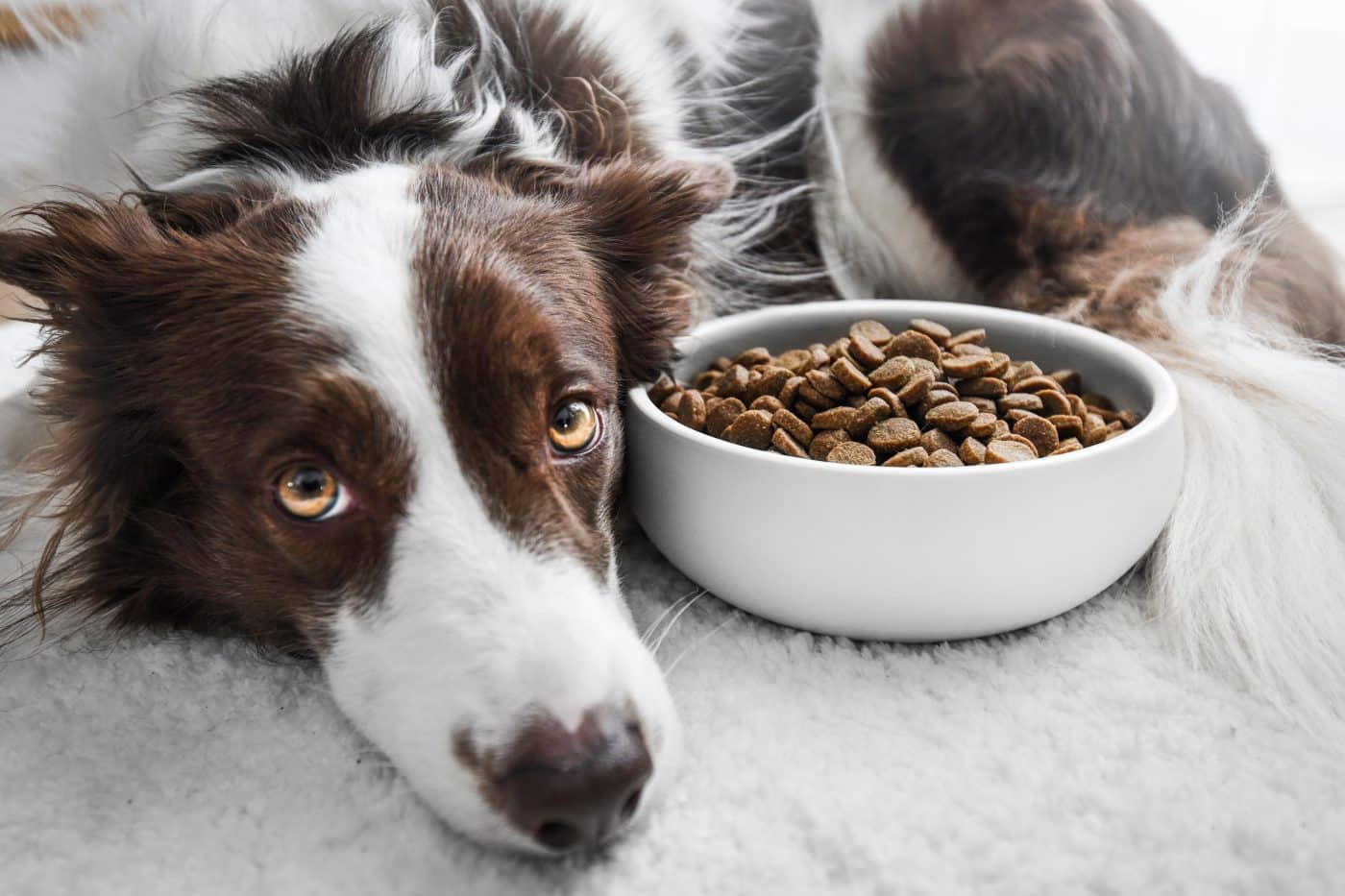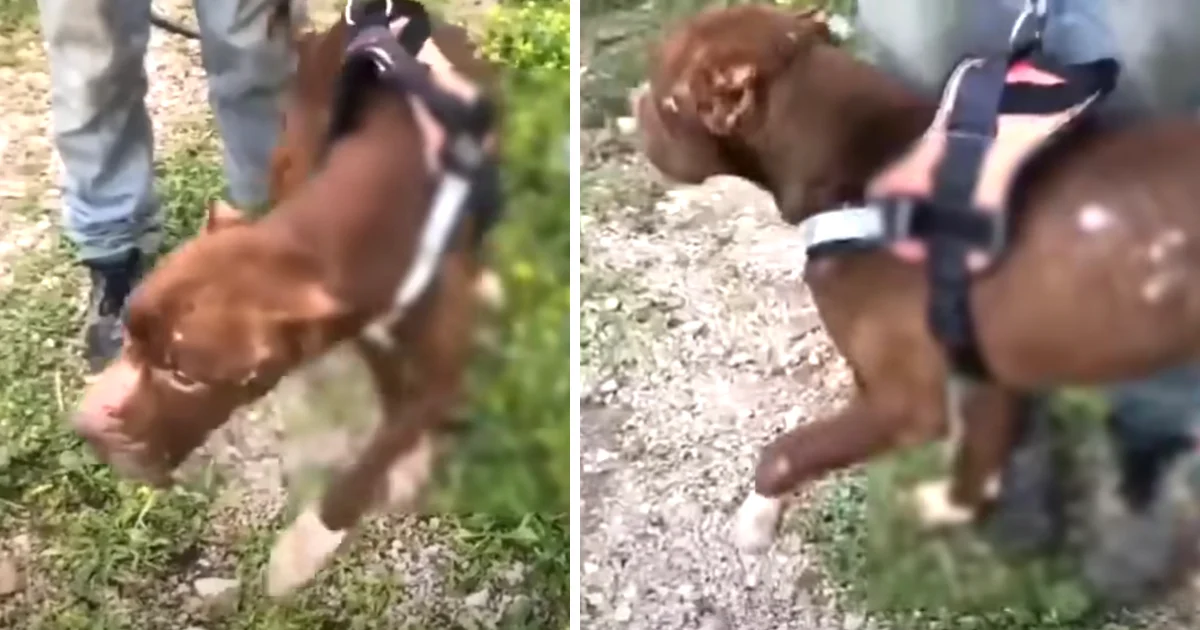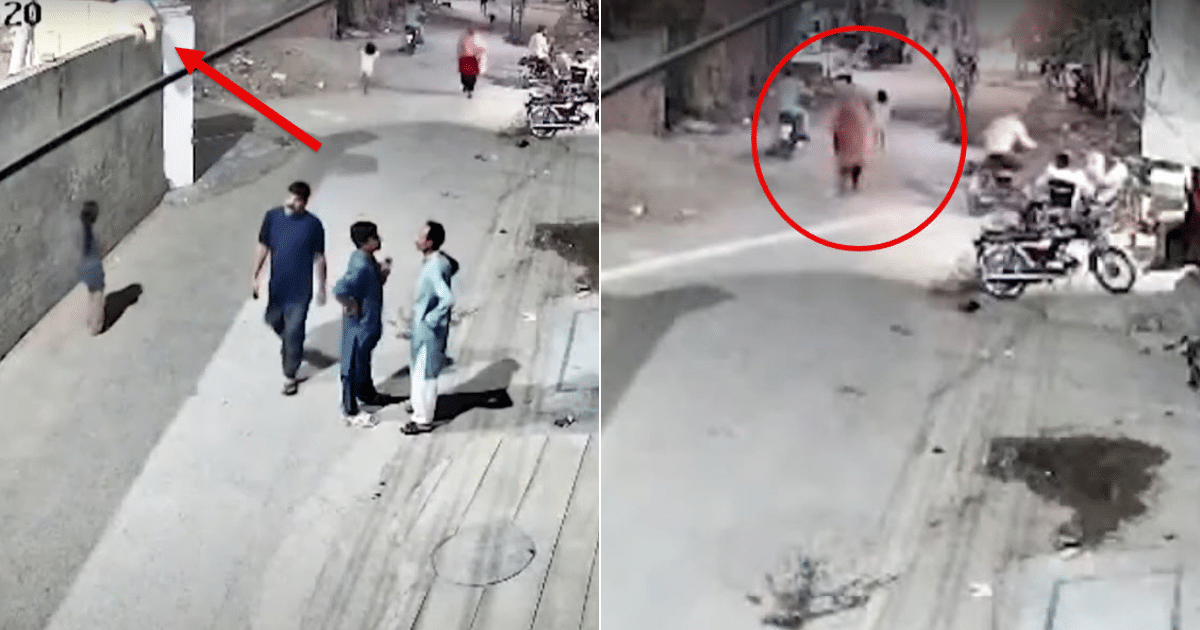PROTECT YOUR DNA WITH QUANTUM TECHNOLOGY
Orgo-Life the new way to the future Advertising by Adpathway Shutterstock
Shutterstock
Dogs thrive on routine, so when they suddenly act differently, it can worry any pet owner. Maybe your energetic pup seems sluggish, or your independent dog won’t leave your side. A behavior change could signal something minor, like boredom, or something more serious, like illness or anxiety. Since dogs communicate through their actions, sudden shifts are their way of saying something isn’t right. Whether it’s a health issue, emotional distress, or an environmental change, understanding the cause is key to keeping your furry friend happy and healthy.
Pain or Illness
 Shutterstock
Shutterstock
If your dog suddenly becomes withdrawn, irritable, or avoids physical activity, pain or illness could be the cause. Dogs instinctively hide discomfort, so they may already be in significant distress by the time their behavior changes. Lethargy, whining, limping, or avoiding stairs could indicate anything from arthritis to an internal problem. If their behavior shift lasts over a day or two, a vet visit is the best way to rule out any serious medical concerns.
Anxiety or Stress
 Shutterstock
Shutterstock
Dogs experience anxiety just like humans, and sudden changes in behavior can be their way of expressing it. If your normally confident pup starts cowering, pacing, or avoiding certain areas, something may be triggering their stress. Loud noises, separation from their owner, or even a change in routine can send a sensitive dog into an anxious spiral. Keeping their environment predictable and providing plenty of reassurance can help ease their nerves.
Change in Routine
 Shutterstock
Shutterstock
Dogs thrive on routine, so even small disruptions can throw them off balance. A new work schedule, a different walking route, or even a change in mealtime can make them act out. If your dog suddenly seems confused or unsettled, consider whether their routine has changed. Restoring consistency and sticking to a schedule can help them feel more secure and return to their normal behavior.
New People or Pets in the Home
 Shutterstock
Shutterstock
Introducing a new person or pet into your home can cause your dog to act differently. Some dogs become overly excited, while others may become territorial, anxious, or withdrawn. As they adjust to the new presence, they might bark more, refuse to eat, or start acting clingy. Giving them time to adapt and ensuring they feel secure in their environment will help them settle into the change.
Fear or Trauma
 Shutterstock
Shutterstock
A sudden change in behavior could result from fear or a past traumatic experience resurfacing. A loud noise, an unfamiliar object, or a negative interaction can cause a lingering fearful response. If your dog suddenly avoids a certain area, cowers, or reacts aggressively, consider what might have scared them. Slowly desensitizing them to their fear with positive reinforcement can help rebuild their confidence.
Aging and Cognitive Decline
 Shutterstock
Shutterstock
As dogs age, their cognitive function can decline, leading to changes in behavior. Senior dogs may become disoriented, anxious, or forgetful, sometimes even exhibiting symptoms similar to dementia in humans. They may start pacing, getting stuck in corners, or forgetting basic commands. Keeping them mentally stimulated and providing a comfortable environment can help them easily navigate their golden years.
Boredom or Lack of Stimulation
 Shutterstock
Shutterstock
A bored dog can quickly turn into a mischievous dog. If your normally well-behaved pup suddenly starts chewing furniture, barking excessively, or digging holes in your backyard, they may lack mental or physical stimulation. Dogs need regular exercise and engaging activities to stay happy. Introducing puzzle toys, longer walks, or interactive games can help channel their energy in a positive way.
Dietary Changes or Food Sensitivities
 Shutterstock
Shutterstock
If your dog is acting differently after a recent diet change, their food might be the culprit. Certain ingredients can cause stomach upset, allergies, or even changes in energy levels. Dogs with food sensitivities may become sluggish or irritable or refuse to eat altogether. If their behavior shift coincides with a new diet, consider reverting to their old food or consulting a vet for dietary recommendations.
Changes in Household Dynamics
 Shutterstock
Shutterstock
Dogs are deeply in tune with their family’s emotions and household changes. A new baby, a roommate moving out, or even a household energy shift can impact their behavior. They may become clingy, anxious, or even act out in confusion. Giving them extra attention and reassuring them during transitions can help them adjust more smoothly.
 Shutterstock
Shutterstock
A dog that hasn’t been properly socialized may react dramatically to new experiences. If your pup suddenly starts barking excessively, lunging, or acting fearfully around strangers, they may need more exposure to new environments. Slow and positive socialization experiences can help them gain confidence and prevent fearful or aggressive behaviors from developing.
Exposure to Toxins or Poisonous Substances
 Shutterstock
Shutterstock
Dogs are naturally curious and sometimes get into things they shouldn’t. If your dog is suddenly lethargic, vomiting, or acting strangely, they might have ingested something toxic. Household plants, human food, and even certain cleaning products can cause serious reactions. If you suspect poisoning, immediate veterinary attention is crucial to prevent further complications.
Hormonal Changes
 Shutterstock
Shutterstock
Hormonal shifts can lead to unexpected behavior changes, particularly in unspayed or unneutered dogs. Males may become more territorial, while females may experience mood swings or increased clinginess. Spaying or neutering can often help balance their hormones, but consulting a vet to check for any underlying issues is a good idea if your dog is suddenly acting differently.
Grief or Emotional Distress
 Shutterstock
Shutterstock
Dogs form deep bonds with their humans and even other pets. If they’ve recently lost a companion—whether human or animal—they may go through a grieving process. Signs of grief include withdrawal, loss of appetite, and a general lack of enthusiasm. Giving them extra comfort and keeping their routine as normal as possible can help them cope with their loss.
The Secret Life of Your Confusing Canine
 Shutterstock
Shutterstock
Dogs don’t change their behavior without a reason—they’re always communicating, even subtly. Whether it’s a health issue, emotional distress, or adjusting to life’s changes, paying attention to their shifts helps you understand them better. Their actions are like puzzle pieces; with patience and observation, you can piece together what’s happening. If your pup suddenly seems different, don’t panic—just put on your detective hat, grab some extra treats, and work together to solve the mystery behind their sudden behavior change!


 4 months ago
30
4 months ago
30





















 English (US) ·
English (US) ·  French (CA) ·
French (CA) ·